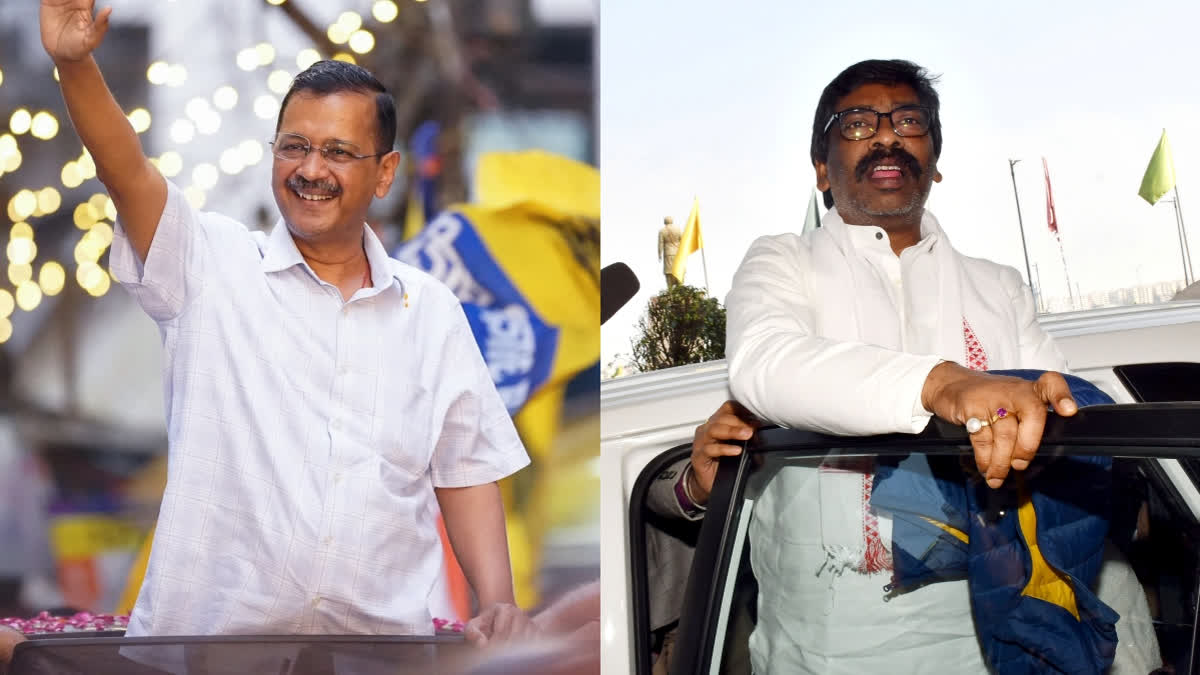The year 2024 saw two Chief Ministers – one sitting and the other former – having to face arrest on charges of money laundering. Former Jharkhand CM Hemant Soren was arrested for his role in the alleged illegal sale and purchase in Ranchi of land belonging to the Indian Army. Soren resigned as CM immediately before his arrest on January 31.
Arvind Kejriwal, who continues to be Delhi’s CM, was arrested on March 21, on allegations of corruption in connection with the now-discontinued Delhi Liquor Excise policy. Both these arrests came at the behest of the Enforcement Directorate (ED), the central agency tasked with investigating offences related to money laundering, and violations of foreign exchange laws.
Both Soren and Kejriwal sought interim bail from the Supreme Court to be able to campaign in the ongoing General Elections. Requests for bail or interim protection made by both in respective High Courts – Jharkhand and Delhi – had been turned down. Despite all these parallels between these two arrests, there is also a vital point of divergence – while Kejriwal has been granted interim bail by the Supreme Court, Soren’s incarceration continues.
What Brought About Kejriwal’s Release?
On May 10, a division bench of the Supreme Court ordered Kejriwal’s release on interim bail. This order was passed in an appeal against the orders/judgments passed by the Rouse Avenue Court and Delhi High Court upholding Kejriwal’s arrest. In granting bail to Kejriwal, the ongoing General Elections played heavily on the Court’s mind. This is evident from the Court’s observation to the effect that “General Elections to Lok Sabha is the most significant and an important event this year, as it should be in a national election year.” The Supreme Court also noted that courts take into consideration the peculiarities associated with a person while granting bail, and to ignore the same would be iniquitous. To that end, the Court noted that Kejriwal’s situation is not comparable “with the harvesting of crops or plea to look after business affairs.”
Given that he is the CM of Delhi and the leader of the Aam Aadmi Party (which is also part of the Indian National Development Inclusive Alliance or I.N.D.I.A.), coupled with the background of the General Elections, Kejriwal was directed to be released on interim bail. While arriving at this conclusion, the Supreme Court also noted that Kejriwal does not have any criminal antecedents and that the legality of his arrest was itself under challenge. Kejriwal has been released on bail till June 1, and is expected to surrender on 2 June. As part of the conditions subject to which he has been granted bail, he can neither visit the Chief Minister’s Office and the Delhi Secretariat nor sign official files. He is also expected to not make any comment regarding his role in this case, interact with any witness, or access any official files connected with the case.
